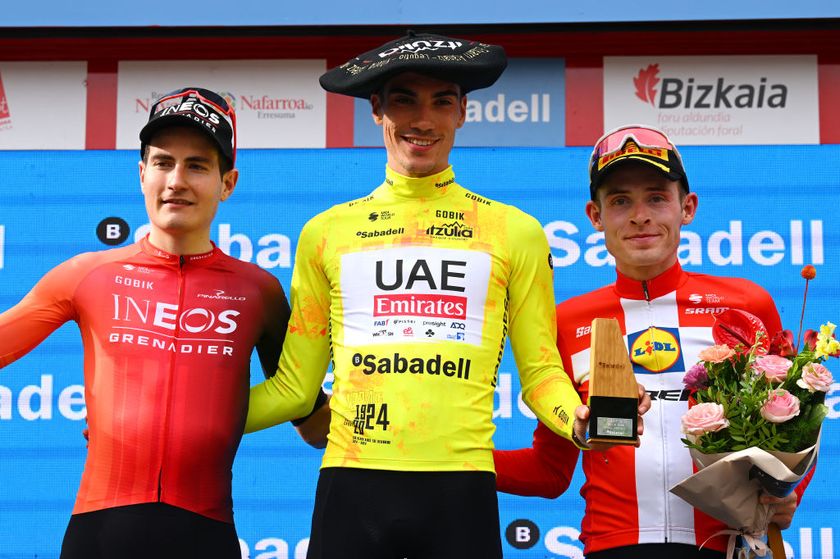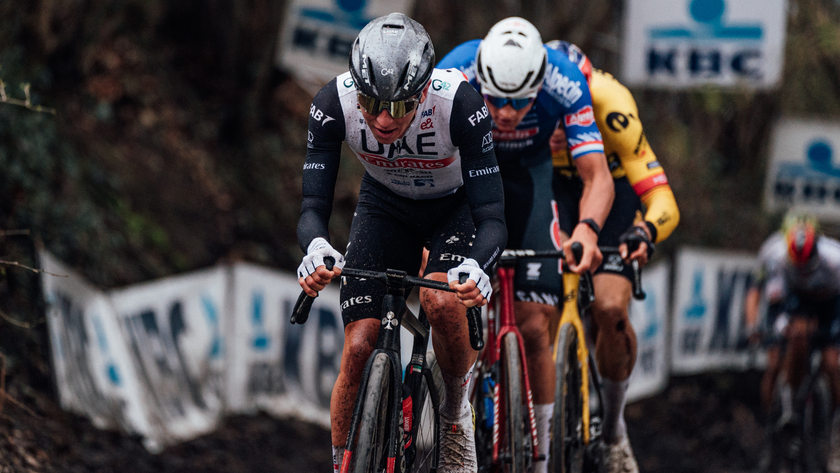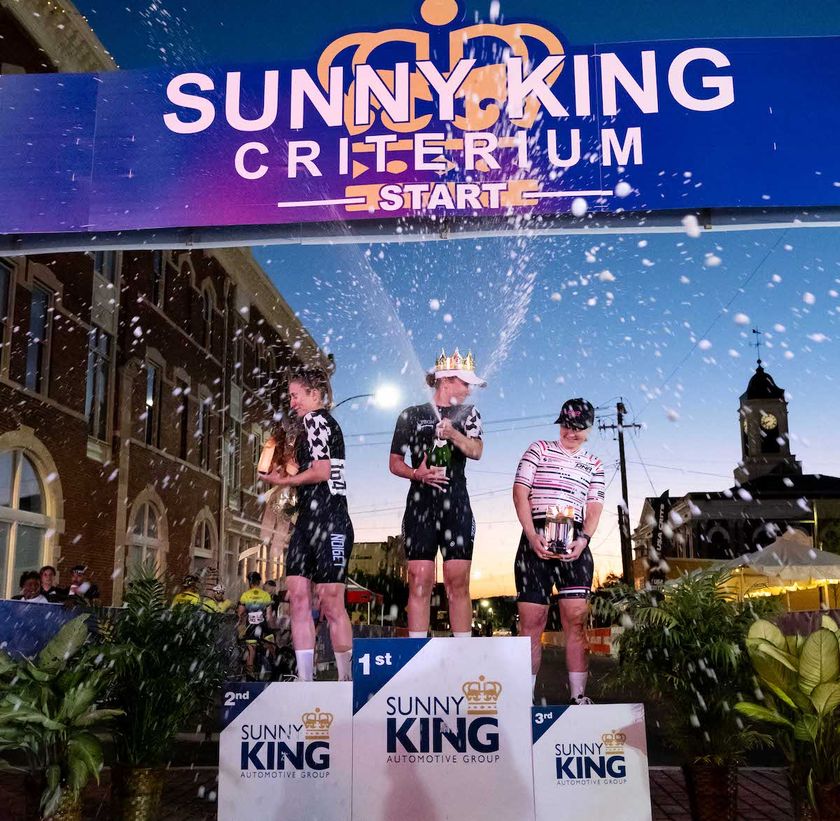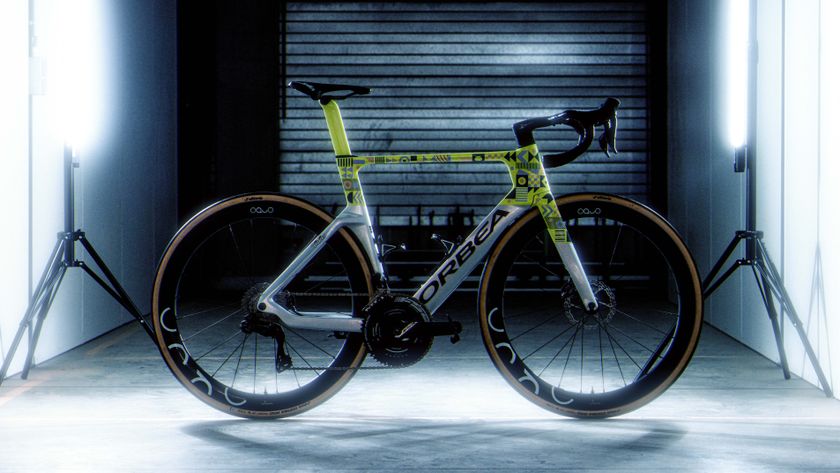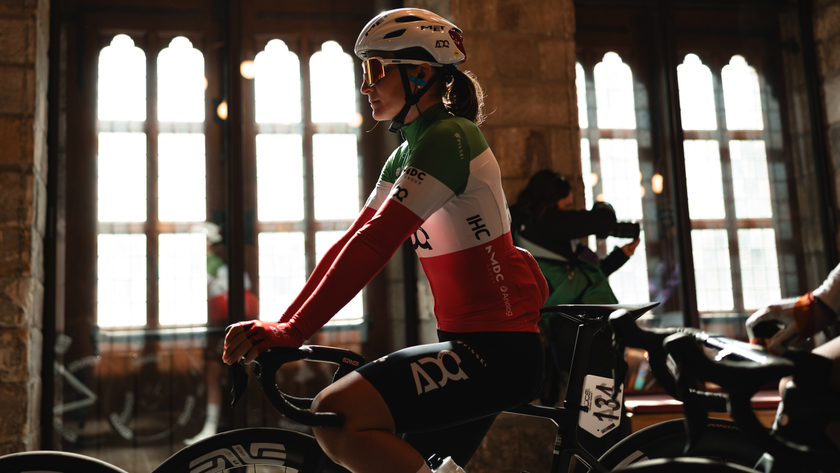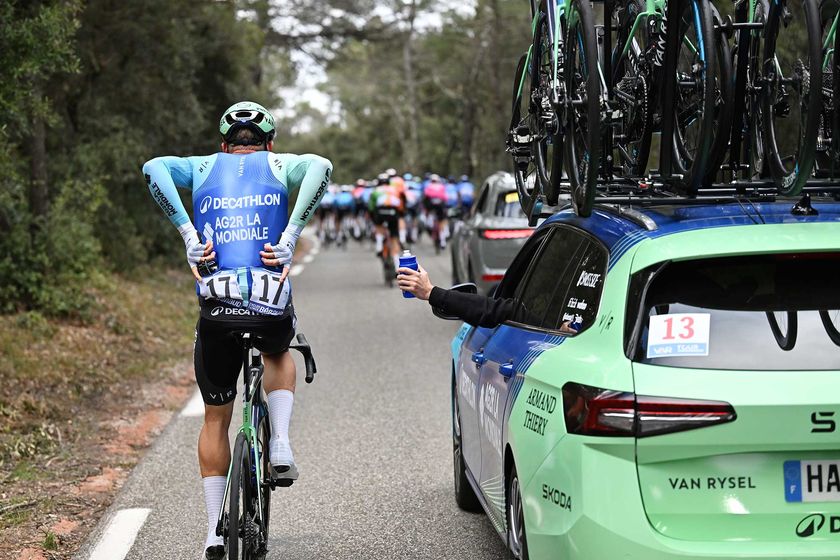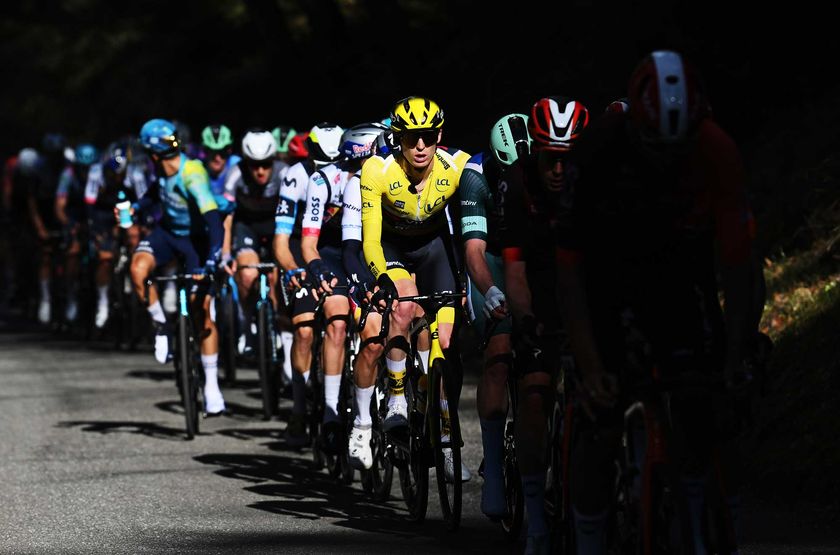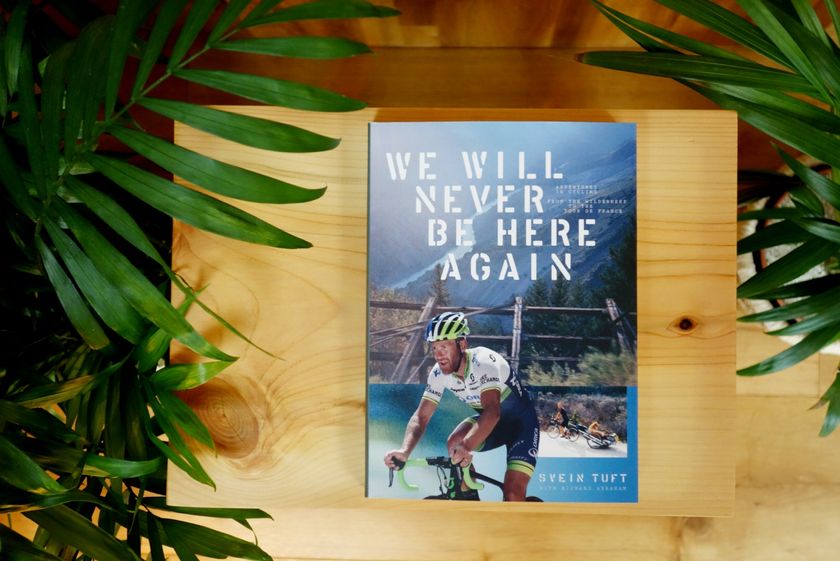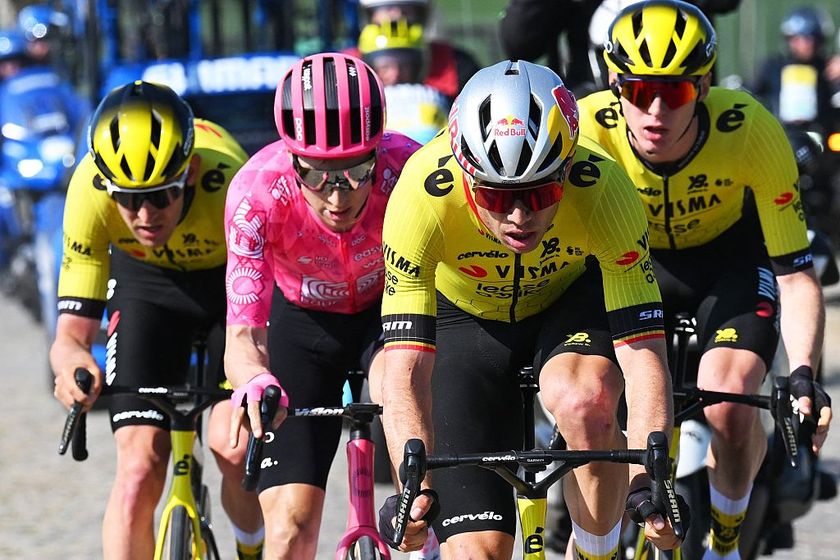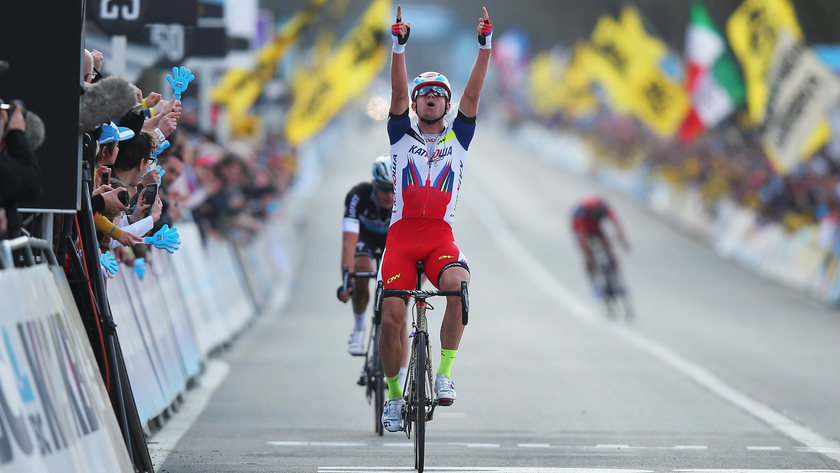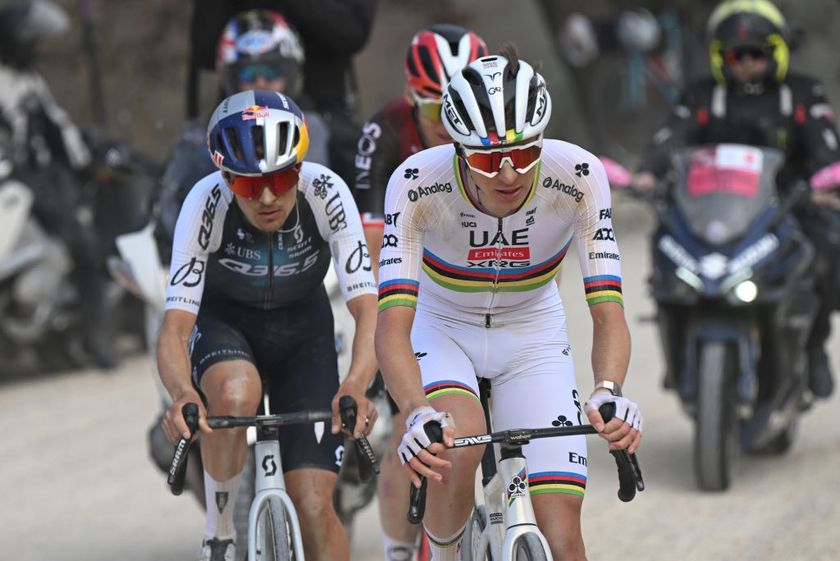Armstrong addresses industry, LeMond crashes party
A day after officially announcing his comeback to professional cycling, Lance Armstrong made an...


























News feature, September 26, 2008
A day after officially announcing his comeback to professional cycling, Lance Armstrong made an appearance at the Interbike trade show to give the cycling media and industry an opportunity to hear more details of his plans, including the special testing by Don Catlin of the UCLA anti-doping lab. Catlin joined him on stage along with American Taylor Phinney who will lead Armstrong's new developmental team which will be sponsored by Trek.
Sitting in the front row, asking the first question was another Tour de France champion and outspoken critic of Armstrong, Greg LeMond. Cyclingnews was on hand to hear the plans and questioning from the industry, including LeMond.
Lance Armstrong has been busy over the past two days, even for him. Yesterday he addressed the world about his plans to return to professional cycling at the Clinton Global Initiative annual meeting in New York City. He then gave his own press conference in New York before boarding his private jet to make it to Las Vegas in time for the Cross Vegas cyclo-cross race. After a day that essentially began at 2:30 a.m. local Vegas time, he ended his day in 22nd place and with the largest throng of media around him.
But the next morning he was back up early for a 9:00 a.m. press conference with more than 100 people waiting with questions. He began with a summary of the already reported news. "I announced my official return to professional cycling in New York City, then got beat up a little bit last night in the cyclo-cross event, which felt great!" he joked. "But I thought it was essential that we be here at the trade show to allow you the opportunity to ask questions."
"There have been a couple of updates since yesterday: I changed my mind! Just kidding. It crossed my mind about 20 minutes into Cross Vegas last night – 'are you sure you want to do this?' "
"The one update from yesterday is that I will now be doing the Tour of California. I will be starting with the Tour Down Under, then heading to training camp and then going to the Tour of California."
Get The Leadout Newsletter
The latest race content, interviews, features, reviews and expert buying guides, direct to your inbox!
In the first seat of the front row was former Tour de France winner Greg LeMond, who led off the questioning with some pointed ones, all surrounding the theme of questioning the reasonability of the planned special testing of Armstrong by Don Catlin of the UCLA lab.
"I see Mr. Greg LeMond is here," Armstrong said somewhat wryly, but allowed him to have the first question.
LeMond pressed Armstrong and Catlin about the type of testing they had planned. He levied some reasonable critiques, essentially calling into question the proposed testing, arguing that it is not comprehensible enough, such as using T/E ratios and tests for specific EPO drugs as opposed to measuring physiological variables such as power output changes over time. LeMond inferred that a spike in power output would better indicate the use of something compared to trying to test for particular substances.
"That is not my area," responded Catlin. "He will be subject to testing by everyone under the sun. I think that will be all sorted out."
Catlin said that the actual program is still taking shape. "[Lance] has agreed to a couple of a few very fundamental points. One is his data, like T/E ratio and all that kind of stuff that a doping control is allowed to do will be on the web, so you can see it. 'Ah, your T/E ration changed today, what happened?' Like to see if he is taking EPO – all the actors to make it a very public campaign."
"There is nothing that he has asked [for] nor will I accept - it [would be] out of bounds."
"The other thing is samples will be kept frozen for a good long time so that if next year, five years a new test comes out and someone says Lance was doing something five years ago, we can pull out the samples and test them. This is longitudinal testing whereas the usual type of testing is taking a stop in time. This is where you connect the dots and is much more powerful kind of program to understand the physiology."
"That is all irrelevant," LeMond responded. "It doesn't matter about T/E ratio but watts and power output..."
"I don't think it is irrelevant," said Catlin. "I dare say you know this business pretty well! Come with your ideas of what we should do!"
At that point Armstrong stepped in tried to move things along. "You've done your job," Armstrong said to LeMond. "We are here to talk about a couple of things, like the Global Clinton campaign and my comeback to cycling. It's time for us, everybody in this room, to move on. We are not going to go there, I appreciate you being here – next question."
Down to racing
One of the reasons Armstrong came to Interbike was to offer more details about the actual racing aspects of his plan, something that the general media would not likely care about, but the cycling world was salivating for. And of course one of the biggest questions was the decision to race with Astana and not start his own team, as some speculated he would.
"It is very difficult to start your own team," he said. "There are two things: one, I am extremely loyal to Johan – I couldn't imagine racing against him or racing without him. Second, I am extremely loyal to Trek. It was a natural fit to go to Astana because Trek was there and Johan was there. The main infrastructure of the team that I had before is still there. But it was mostly out of loyalty to those two."
And the question following that was about the reported issues with the team's current leader Alberto Contador not wanting to race on the same team as Armstrong. Lance used this question to stress perspective on his racing comeback, continuing to downplay earlier reports that he wants to win the Tour.
"I've never raced on the same team, just in the same peloton with him," said Armstrong. "I would tell Alberto that I am not sure after four years off the bike and being four years older that I can be as competitive that I was before. It isn't about that and I've maintained I think he is the best bike rider in the world right now. I don't know how events will unfold, but I certainly hopes he stays with the team – he is a great rider and a good guy."
"I think we have to enter into it with perspective," he said about his impressions regarding his role on Astana next year. "I certainly would not expect to be the leader in any race if I wasn't the strongest man on the team. We will play that day-by-day, week-by-week leading up to it. I will always follow orders of the team and the orders of the director. I think that is the critical thing of a team, all of the athletes need to follow the orders of the coach. Johann will make that call, he is very smart and will understand who is strongest."
"Again, I can't reiterate it enough that four years is long time to be off the bike, but time will tell."
He also commented about the other top Astana rider, American Levi Leipheimer. "If you look at the Vuelta [Contador] won that based on time bonuses. On the road, time trials and climbs, they were cutting into his time. So Levi is in the same position, he is one of America's greatest cyclists – certainly today and of all time. We do have some figuring to do, but I am not worried about it."
Armstrong said the duration his return is open-ended, depending more on getting his non-racing message out than palmarés. "Honestly there is no contract because there is no salary and no bonus. This is essentially a donation, because it is more about the campaign. I think we had some concerns about the Livestrong on the jersey, but once we had that we were done. I will ride for at least a year, but I don't want to say it will be one-and-out, it could be more."
"I think a big part of that will be how long it takes us to unroll this campaign. If it ends at the summit in Paris and we have the commitments from world leaders that we could ultimately see implemented, it might be beneficial to race another year. I have other endurance-related things I want to do after cycling."
Speaking of France, Armstrong already indicated he is targeting the Tour as a goal, bringing up the old questions of his 'relationship' with the French, particularly the media and the organizers of the Tour. He said he has not spoken directly with the Tour director Christian Prudhomme. "I have not spoken to him, I saw in the press this morning that Astana is more than welcome to come to all 2009 [ASO] races... barring any further controversy, but I don't think we are worried about that."
"I think a lot has been made about the tension between me and the fans in France, as well as between our societies and culture. The fact of the matter is I think it is a great country. I lived there for some time. I look forward to going back, but I don't think the Tour will be my first experience in France, maybe a Paris-Nice for example."
The (anti)-doping questions
With LeMond in the audience the questioning again turned to the anti-doping part of Armstrong's return. And with Armstrong pushing this aspect up front, it was not surprising. "I really try to seek out the most credible and well respected anti-doping crusader, especially here in the United States," Armstrong said about choosing Dr. Catlin. "It's a level of transparency that I didn't want to leave that box unchecked. So I signed with Don and he has a job to do. It is his job and not my job – I will subject myself to whatever he wants. Ultimately I think we as fans must get back to enjoying the race. Hopefully this helps, but there will always be people who question it."
"I don't believe it is beneficial for cycling to constantly sit around and question performance," said Armstrong. "To accuse people and point fingers – older generations versus newer generations versus current generations. I think we as a sport and movement must recognize that doping has always existed in sport and will probably always exist. But ultimately as an event you lay out the rules and make them public, and if people cross the line you kick them out and move on. We don't say that our sport is doomed or is finished, we move on. Cycling has been around for a long time and weathered many, many storms."
When asked about the cost of the proposed testing regime, neither Armstrong or Catlin could give a definitive answer – only that the team will be picking up the tab. "It is probably prohibitive for a lot of athletes to do it," said Armstrong. "But I am not taking a salary so I can ask the team to do certain things and this is one of them that is imperative."
